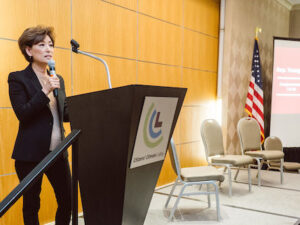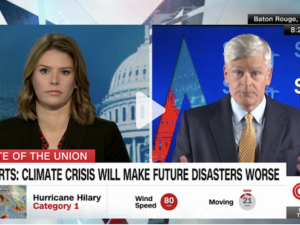SC economists call for a carbon price
SOUTH CAROLINA, April 8, 2022 – Citizens’ Climate Lobby volunteers in South Carolina have organized a statement from 10 professors of economics and related fields at six respected institutions across the state. The economists urge lawmakers to support effective climate policies. See the full statement and the signatories below.
Climate change poses a serious threat to South Carolina’s natural environment and economic prosperity. Temperatures are increasing and higher water levels are eroding beaches, submerging low lands, and exacerbating coastal flooding. South Carolinians are already experiencing the harmful effects of extreme weather events, and the damage will only worsen if we do nothing to mitigate climate change.
Now is the time for our representatives to take action. Addressing climate change requires effective national policies guided by sound economic principles. To that end, 10 professors of economics and related fields from six respected institutions are asking South Carolina’s congressional delegation to support the following policies:
Impose a carbon fee
A carbon fee offers a cost-effective lever to reduce emissions at the scale and speed necessary to mitigate damage from climate change. It avoids the need for regulation while stimulating technological innovation and the development of carbon-efficient goods and services. A carbon fee applies market forces by encouraging the use of cleaner energy sources and the purchase of less pollution-intensive goods.
Return the fee to Americans as a carbon dividend
Revenue collected under this carbon fee policy should be returned as regular lump-sum payments to Americans. A dividend program increases the policy’s fairness. Importantly, the carbon fee and dividend policy would benefit most South Carolinians and households across the U.S., including the most vulnerable. The majority of families would receive a larger dividend payment each year than they pay in increased energy prices and prices of other goods.
Create a border tax adjustment
To ensure that American companies maintain their competitiveness and are not penalized for their energy efficiency, the policy should include a border tax adjustment on imported goods. The tax would be based on the carbon emissions associated with the production of the imported goods. In addition, the border adjustment would offer rebates to U.S. producers that export to countries without carbon fees.
Meeting emissions reduction targets
The policy should include emissions reduction targets and mechanisms for enforcement. The carbon fee should start low, then increase each year until we achieve these targets. A carbon fee that gradually increases over time will give firms time to adapt to the new policy while also providing a strong incentive to quickly innovate and invest in new low-carbon technologies.
Effective policy
We present this as an effective, practical policy, which should be enacted as soon as possible.
Signed
Calvin Blackwell, College of Charleston
Robert M. Gonzalez, University of South Carolina
Miren lvankovic, Anderson University
M. Taha Kasim, Furman University
Luis Felipe Saenz, University of South Carolina
Tamara L. Sheldon, University of South Carolina
Stephen P. Slice, University of South Carolina
Donald L. Sparks, The Citadel
Orgul D.Ozturk, University of South Carolina
Madelyn V.Young, Converse College






